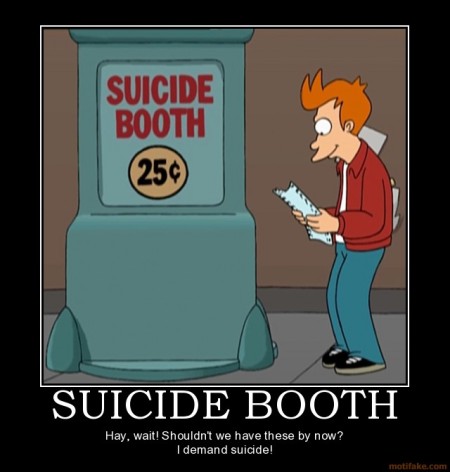August is upon us. Since yesterday. Guess I was too busy playing with ornamental explosives at a barbecue to post anything about it. That or I’m a lazy bastard. Your choice.
So, what’s going to make August long? No classes. No job. Boring! Perhaps what I should do is try to find a job with all the time that lack of classes is going to give me. Perhaps work on some research for my again-stalled writing. Fucking stolen thumbdrive. Rage.
I’m having a hard time pinning down work for what I think is a pretty obvious reason: I’m a dick. At my last job I got fired. I blew my lid, and managers can’t do that. Doesn’t matter that the kid was baiting me. What matters is that I played my part as the bull quite nicely and charged the red cloth. Pretty stupid, I’ll tell you what. So now I’m out of work for over a year, with no reference from the last place. Not a sweet spot to be sitting in. On the other hand, I do have a reference from the co-ordinator of my program.
Professor David Pastirik, this is my shout-out to you, thanking you for having faith in my abilities. And for telling me to shut up (in a nice way) when I answered all the questions in your last lecture without letting anyone else in the class get a chance to mull it over. And for taking it with good spirit when I wrote the answer on Ana’s piece of paper so she could respond instead. You’re undoubtedly the best teacher I’ve ever had, bar none.
Now, to get far enough in the hiring process somewhere that they’ll actually use the reference. I’ve done hiring for places before, as both assistant manager and manager, so I know what these people are seeing as the problem. Wish there was something I could do about it short of lying about why I left the last place. Perhaps I should sugar coat it a bit, without actually uttering a direct untruth. I do have a lot of soap at home with which to scrub off the dirt; the shame will take years of expensive counselling to repair. So I should aim for a workplace with a good benefits plan and some kind of left-wing liberal feeling that they should turn all their employees into cuddly Care Bear types.
Aside from writing this post, which has currently eaten up all of ten minutes of the month, what else can I do with August, aside from the relatively futile job search? The writing. That’s right, write! I need to replace all the research I had done, and add it to the bits and pieces I’ve compiled since. Mostly stuff about terraforming and sentience quotients. The former comes from the wonderful Mars trilogy by Kim Stanley Robinson. If you like hard science fiction, this trilogy will knock your socks off. And if it doesn’t, go play World of Warcraft, you elf-loving son of a… Sorry. Got off track there.
The latter is really interesting. This fellow, Robert A. Freitas Jr., came up with this thing in the late 70s. He must have been anticipating my need for it in the early 21st century. Thanks, Bob! This is a wondrous little equation, that I shan’t record here, that can be applied to any system that processes information. Animals, computers, houseplants. You name it. What it boils down to is this: it compares the system’s ability to process information (in bits per second) and compares it to the mass of its “brain.” Thereby we find out that human beings have a sentience quotient of +13. Houseplants have 0 (though those carnivorous little beasts like Venus flytraps have an astronomical +1), and the Cray-1 computer had +9. The most recent “artificial intelligence” supercomputer, the IBM Watson, scores somewhere between +11 and +12, so we can see that computers have made some headway, but we’re still winning. Nyah nyah, Asimov. None of this relates to sapience, which is a reference to a being’s intelligence or cognitive ability. The limits are set at a minimum of -70 (I guess a rock or something) and +50 (God, or maybe one of those Q guys from Star Trek, or that nerd next door who can quote everything that Spock ever said).
Given that I got my ass fired, it’s fairly questionable whether I genuinely score a +13.

